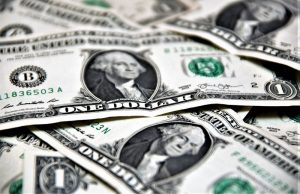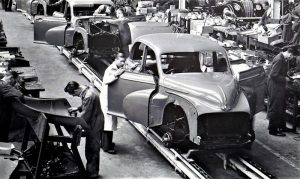Monopoly
We know as monopoly the type of market structure in which there is only one provider of a given good or service, this means that there is only one company that is responsible for dominating the entire supply market. The monopoly is, under what we know in economics, a form of imperfect competition, in which a single producer or seller is the one who has total control, and the producer has freedom to set its prices freely upwards, damaging many consumers who need to obtain that service. For this reason, in economic sector, monopoly market is not efficient and is considered to some extent an undesirable economy.

Related topics
Monopolistic competition, perfect competition, duopoly, monopsony, oligopoly, oligopsony
What is monopoly?
Monopoly is a market type in the field of the economy in which there is only one provider that gives a certain good or service, and being unique, has the ability to have total control of products by setting the prices he prefers, affecting consumers.
A company that is ruled under monopoly system knows very well the dominance that it exercises over the market and knows that it has no competition, which gives it the freedom to influence directly the price and what they offer within the market. It is said that the monopoly company has the market power and uses it to increase prices and reduce the amount of material they produce in order to obtain greater profits.
Characteristics of monopoly
Monopoly as a company has a number of characteristics that allow us to recognize immediately when we are faced with one, among others we can cite:
- There is only one company which is in charge of producing and selling a certain product or service. The organizations have total market control and the lack of competition causes the company to increase product prices without fear of being overtaken by others.
- It is not possible to find within the market some of the goods or services that the company provides, products that are similar or some product that can come to replace the product that is needed.
- It’s in great demand.
- There are rigid barriers to market entry.
- The businessman who practices monopoly, has absolute capacity to be able to fix product prices as he prefers, and for his own convenience.
- There is no clean production factor mobility within companies.
- A monopoly has access to different types of specialized information and uses this type of market information only for the firm. This special information has the option to give the company the benefit of special production
Types
Pure
It’s the type of monopoly where there’s only one company. The products manufactured by the company have no competitors or substitutes. Its products are of a homogeneous type, i.e. of the same type. The government does not intervene in company functions in any way. Production factors have the so-called perfect mobility, which is when investors have the facility to buy assets quickly and without any limit.
Natural
It is the one that is created by mandate or consumer demand. It is impossible to control the prices of products because it has potential competition, permanent competitiveness, elasticity of demand and products. It has the capacity to survive against competition, by the consumers’ vote because, when the consumer is not happy with the company provided by one producer, he can usually choose a different one.
Artificial
In it, the company in charge of monopoly acquires some mechanism to prevent the arrival of products similar to those produced in it to the markets. These means used by monopoly companies can be of different kinds and can range from violence to consumer restriction of product demands.
Price Discriminator
Companies use it to sell a certain service or product at different prices and to different consumers. It is a discriminatory monopoly no matter if the costs in the production of the good are the same. In order to achieve this type of monopoly, the company must have several commercial establishments.
Consequences of monopoly
Most of the consequences are negative, some of them are the following:
- Because there is no competition from other companies, monopoly can act under its own account and interest, which we know as maximum benefit.
- It is conditioned only by demand, that is the one that can put limits on their prices.
- It will sell its products at a higher price because it has no competition and will produce less product.
- It harms consumers who have to buy products at very high prices.
Advantages
- Products can be produced on a large scale and the performance of different innovations in the area of technology can be increased.
- Companies’ production costs are reduced.
- They are able to eliminate excesses of capacity in companies and avoid disproportionate
Disadvantages
- Monopoly has the disadvantage that it causes consumer exploitation mainly by restricting the production and variety of products, forcing the consumer to pay higher prices without having other purchase options.
- Efficiency in management is affected because there is no competition.
- Poor people and small producers are affected by unfair competition and not being able to compete with large companies.
Examples
The following companies are examples of commercial monopolies around the world:
- The Spanish Empire over the American colonies during the conquest (trade)
- Microsoft (software and hardware production)
- Coca Cola (beverages and food)
- Bimbo Group (bakery and confectionery)
- Nike (footwear, clothing and sporting goods)
- Telmex (telecommunications)
- Televisa (telecommunications)
- Unilever (food, beverages, household items and personal care)
- Procter & Gamble / P&G (hygiene and personal care)
How to cite this article?
Briceño V., Gabriela. (2019). Monopoly. Recovered on 4 January, 2025, de Euston96: https://www.euston96.com/en/monopoly/









